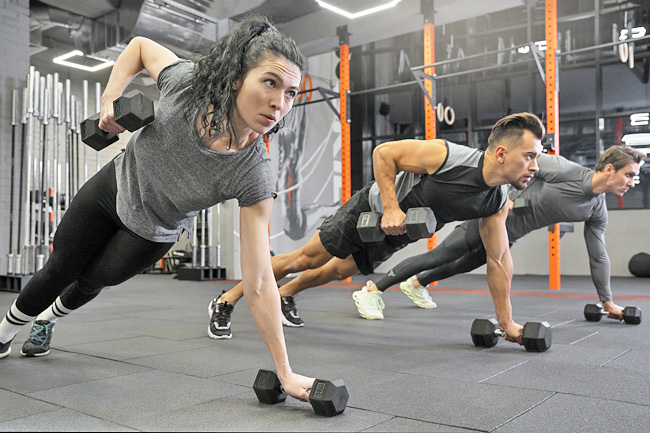AFP – According to an American study, the feeling of well-being experienced during a sports session is connected with our intestinal microbiota.
This “gut-brain” link appears to be a factor in upping our levels of physical activity, and therefore, our motivation to be active.
According to researchers at the Perelman School of Medicine, University of Pennsylvania, certain gut bacteria may influence sensory nerves that affect motivation.
To carry out their study, which was published in the journal Nature, the researchers measured the physical activity of 106 mice.
They compared the performance of the animals while looking at their gut bacterial species and metabolites, example molecules produced by the bacteria.
They then calculated the amount of “voluntary wheel-running” done by the mice, as well as their endurance.

The result was that “giving mice broad-spectrum antibiotics to get rid of their gut bacteria reduced the mice’s running performance by about half,” the researchers noted in a press release.
They reveal that two microbial species, Eubacterium rectale and Coprococcus eutactus, produce metabolites called fatty acid amides (FAA).
These have an influence on the stimulation of receptors present on sensory nerves.
These nerves are located in the intestine and connect to the brain via the spine.
When the relevant receptors are stimulated, these nerves increase the production of dopamine, the “happiness hormone”, during physical effort.
“This gut-to-brain motivation pathway might have evolved to connect nutrient availability and the state of the gut bacterial population to the readiness to engage in prolonged physical activity,” said study co-author and associate professor of Biology at the university’s School of Arts and Sciences Dr J Nicholas Betley.
“This line of research could develop into a whole new branch of exercise physiology.”
However, the researchers caution that the presence of this pathway in humans has yet to be confirmed.
This is not the first time that this gut-to-brain pathway has been studied.
In 2022, researchers discovered a “psychobiotic” diet, capable of reducing stress through food, while others have made the link between alcohol consumption and the microbiota.







